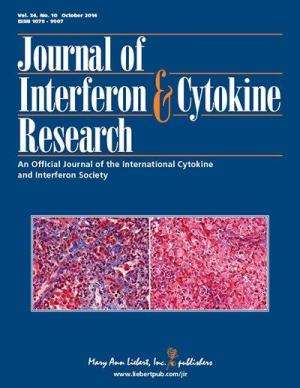Credit: Mary Ann Liebert, Inc., publishers
Interleukin-27 (IL-27), a member of the interleukin family of cytokines that help regulate the immune system, has a mainly anti-inflammatory role in the body, and its dysfunction has been implicated in autoimmune diseases such as multiple sclerosis and Crohn's disease. More recently, IL-27's proinflammatory activity and role in chronic inflammatory diseases is becoming increasingly clear, and a new Review article that explores the potential to target a range of diseases that share common IL-27-activated mechanisms is presented in Journal of Interferon & Cytokine Research (JICR).
Christopher Wynick, Carlene Petes, and Katrina Gee, Queen's University, Kingston, Canada, explain how IL-27 can contribute to the control of both anti- and proinflammatory responses depending on the predominant type of immune response elicited in the body, the disease type, and the disease severity. They focus primarily on the proinflammatory activity of the cytokine in the article "Interleukin-27 Mediates Inflammation During Chronic Disease".
"IL-27 is emerging as a significant determinant of the character of inflammatory response and this review provides an important perspective," says Co-Editor-in-Chief Thomas A. Hamilton, PhD, Chairman, Department of Immunology, Cleveland Clinic Foundation, Ohio.
More information: The article is available free on the JICR website until November 20, 2014.
Provided by Mary Ann Liebert, Inc






















